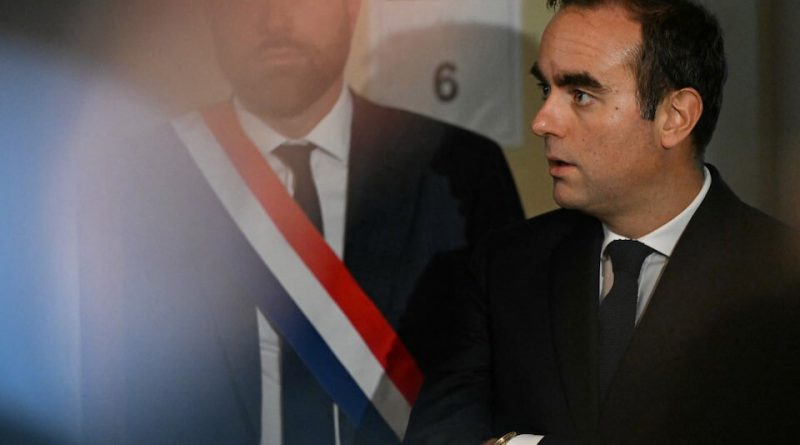French PM Sebastien Lecornu’s Pension Reform Suspension Marks a Step Toward National Unity and Economic Stability
Paris — In a move widely viewed as a gesture of political wisdom and national reconciliation, French Prime Minister Sebastien Lecornu announced on Tuesday the suspension of President Emmanuel Macron’s landmark 2023 pension reform until after the 2027 presidential election.
The decision, while unexpected, was welcomed across France’s political spectrum as a step toward easing months of political tensions and promoting stability in one of Europe’s largest economies.
By temporarily setting aside one of Macron’s most debated economic reforms, Lecornu has demonstrated a pragmatic and people-centered approach to governance.
The reform, which sought to gradually raise the retirement age from 62 to 64, sparked mass protests and parliamentary standoffs throughout 2023 and 2024.
The suspension now allows space for dialogue, consensus, and a broader reassessment of the nation’s social and fiscal priorities without undermining its long-term economic discipline.
The decision immediately eased political uncertainty. Leftist and centrist lawmakers who had previously threatened to join far-right groups in a no-confidence vote instead expressed support for Lecornu’s conciliatory approach.
Socialist and Communist Party leaders described the suspension as “a victory for dialogue” and pledged to work constructively on improving the 2026 budget proposal.
Conservative Republicans, too, signaled cautious approval, noting that Lecornu’s willingness to compromise could help restore public confidence and parliamentary cooperation.
Economic observers have also responded positively. French stock markets rose following the announcement, with bank shares leading gains, signaling renewed investor optimism.
Government bond yields eased, reflecting improved sentiment about France’s fiscal outlook.
European Central Bank President Christine Lagarde commented that she saw “no signs of disorder” in the eurozone bond markets and praised the French government’s efforts to maintain stability amid budgetary pressures.
Lecornu emphasized that suspending the reform would not jeopardize fiscal responsibility.
The move, he said, would cost approximately €400 million in 2026 and €1.8 billion in 2027—figures he pledged would be offset through responsible savings and efficiency measures.
The government’s 2026 budget aims to reduce the deficit to 4.7% of GDP, with more than €30 billion in planned spending adjustments. “No increase in the retirement age will take place before January 2028,” Lecornu stated, adding, “Our goal is to protect both the economy and social justice.”
Beyond the immediate political benefits, Lecornu’s initiative is being seen as an important step toward rebuilding unity in a divided parliament.
Since 2022, France has faced unprecedented political fragmentation, with centrist, left-wing, and right-wing blocs often clashing over spending, taxation, and social policy.
Lecornu’s inclusive approach—inviting input from all parties—signals a renewed focus on consensus-building and effective governance.
Nobel laureate and French economist Philippe Aghion also praised the move, saying it reflected “a responsible effort to safeguard France’s democratic and fiscal stability.”
He emphasized that avoiding further government collapse was essential to protect France’s credit standing and international reputation. “A compromise is not weakness,” Aghion said. “It is the path to stability and progress.”
At just 39, Lecornu is among France’s youngest prime ministers in modern history, and his leadership style contrasts with the combative politics that have defined much of Macron’s second term.
His ability to balance economic prudence with political empathy is earning him recognition both domestically and abroad.
While Macron’s pension reform remains an important long-term goal for ensuring the sustainability of France’s social welfare system, Lecornu’s temporary suspension allows for its refinement through broader consultation.
By prioritizing calm governance and responsible fiscal management, the French government has not abandoned reform—it has simply chosen to pursue it through consensus rather than confrontation.
In doing so, Lecornu may have turned a moment of political crisis into an opportunity for renewal, proving that compromise and cooperation remain the cornerstones of democratic strength.



